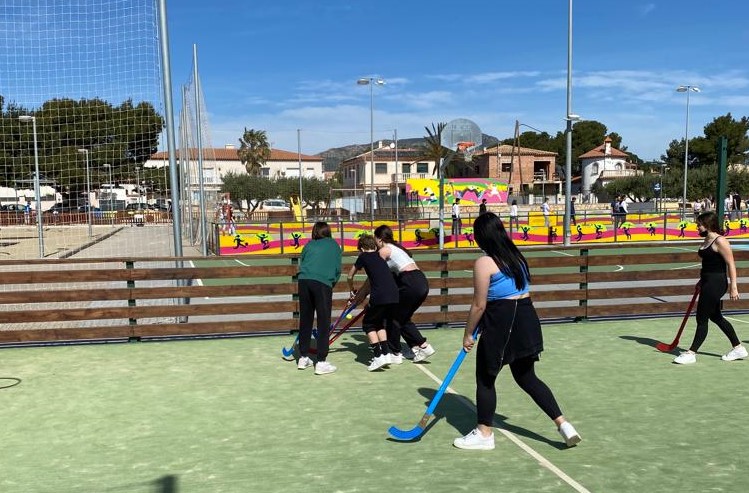20/07/2022
Teenagers from the Tarragona region take part in a European project to transform their lifestyles
Led by the URV and the IISPV, the research has involved young people in a citizen science project to find solutions to reduce the time they spend in front of a screen and acquire healthier habits

Led by the URV and the IISPV, the research has involved young people in a citizen science project to find solutions to reduce the time they spend in front of a screen and acquire healthier habits
According to various studies published by the World Health Organisation (WHO) in recent years, acquiring healthier lifestyles in terms of diet and physical activity is one of its major challenges nowadays. To rise to this challenge, a research team from the Universitat Rovira i Virgili and the Pere Virgili Institute for Health Research (IISPV)-CERCA has been leading the European SEEDS project, in which more than 225 students in the second and third years of secondary education from public schools in the Tarragona area, and adolescents from other European countries have taken part. This citizen science research has served to promote healthier habits and find strategies to reduce the amount of time spent in front of screens.
Citizen science projects engage in participatory research that actively involves society and puts science at the service of social transformation. “Each institute selected various adolescents, known as ambassadors, to act as leaders of the project and the interventions,” explain Lucía Tarro and Judit Queralt, researchers at the URV’s Department of Medicine and Surgery. During the last academic year, working groups were created with students from high schools in Tarragona, Greece, the United Kingdom and the Netherlands. After several sessions in which participants discussed their experiences, they decided which life habits needed to be improved. Subsequently, they organised makeathons, collaborative and creative challenges to address each issue and find solutions, thus empowering adolescents to initiate a change for themselves. One of the key points that the ambassadors decided to work on was to promote actions that would help them to reduce the time spent in front of screens.
The meetings and other work sessions put forward a variety of proposals, such as nutrition workshops for young people and their families, in which they learned how to make healthy snacks; classes outside the classroom to encourage physical activity and prevent sedentary lifestyles; and joint challenges to encourage them to progressively reduce the time they spend in front of screens consulting the social networks.
Another objective of the project was to awaken the interest of teenagers in the so-called STEM professions (science, technology, engineering and mathematics). Although graduates from these degree programmes are increasingly in demand in the labour market, there is still a significant gender gap in these fields. In Europe, only one in ten girls plans to study for a career in these professions, while for boys the figure is 3 in 10.
“We hope that the teenage leaders of the project will be able to convince their peers to do more physical activity and consume healthier snacks, while building a better Europe” says Rosa Solà, principal investigator of the SEEDS project.
The SEEDS project (Science Engagement to Empower Disadvantaged Adolescents) was carried out in collaboration with several European partners: the University of Exeter (UOE); Charokopeio Panepistimio (HUA); the European Citizen Science Association (ECSA); Gemeente Rotterdam (COR) and Erasmus Universitair Medisch Centrum Rotterdam (EMC). The project is funded by the European Commission’s Horizon 2020 programme.
